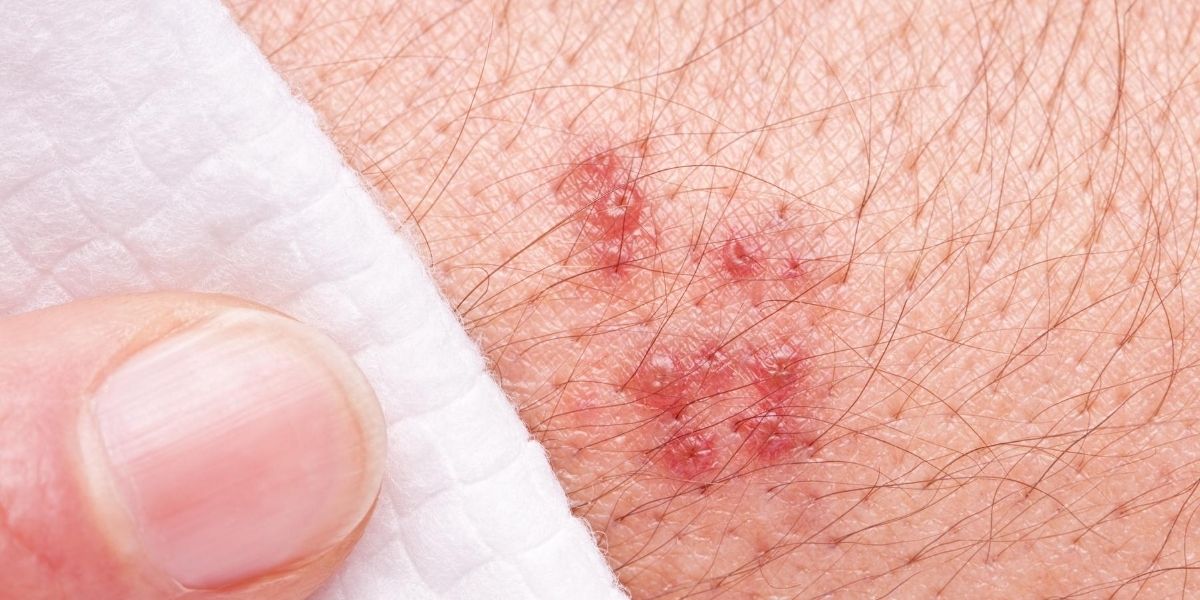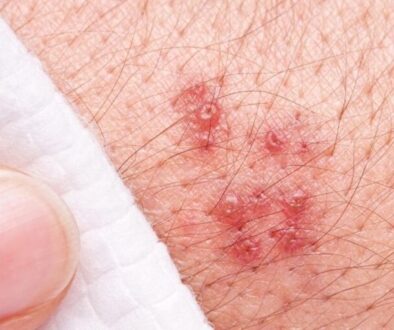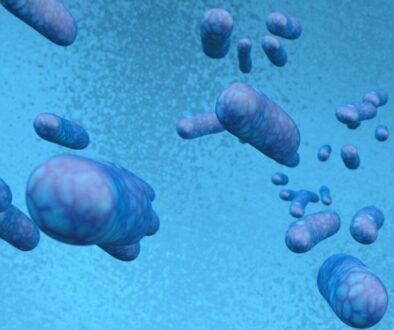Disseminated Herpes: Definition, Cause, Symptoms and Treatments

Published May 31, 2021
According to the World Health Organization, about 3.7 billion people in the world are suffering from herpes. This makes the herpes simplex virus (HSV) an especially widespread virus across the world. As such, many of us are already familiar with how herpes works. But there are instances when a simple case of herpes can become fatal like in the case of disseminated herpes.
What is Disseminated Herpes?
As the name suggests, disseminated herpes is a type of herpes infection that has spread to other parts of the skin and even internal organs.
The herpes simplex virus, as we know, has two main types: HSV-1 (oral herpes) and HSV-2 (genital herpes). This is why herpes lesions normally appear in the oral and genital areas. But when they are termed as “disseminated”, it means that the lesions have already appeared in places where they shouldn’t be.
In general, a herpes infection is rarely fatal. But such cannot be said for disseminated HSV. Though they’re rare, this type of herpes infection can affect the organs making them more dangerous and potentially fatal. In fact, a study in Germany recorded the case of a 70-year-old man who died of multiple organ failures due to disseminated HSV-1.
Causes
The true cause of this disease still requires more research. But one thing is certain: it’s caused by strains of the herpes simplex virus (HSV). Both HSV-1 and HSV-2 infections can lead to disseminated HSV. But in general, most infections are attributed to the HSV-2 virus type.
According to studies, two general groups of people are at risk of developing this type of herpes:
- those with underlying skin conditions
- the immunocompromised
Documented records of the disease are significantly associated with the latter. In fact, it’s thought that the presence of a severe form of the disease is a sign of systemic immunosuppression. Some patients also show a history of GATA2 deficiency, acute lymphoblastic leukemia, and Cutaneous T-cell lymphoma.

Symptoms
Though they have similar symptoms, disseminated herpes should not be confused with shingles (herpes zoster).
The latter is caused by the varicella-zoster virus, a part of the family of herpes viruses. While the former is caused by herpes simplex virus. But some of the symptoms unique to disseminated herpes are:
- Atopic dermatitis
- A widespread eruption of vesicular sacs and pustule
- Orolabial and genital lesions
- Fever
- Dysuria (difficulty or pain urinating)
Immunocompromised patients may not experience orolabial and genital lesions during active outbreaks. But as they are more at risk for more severe and frequent HSV infections, these patients need more aggressive care.
Pregnant women with HSV infection are also more at risk of disseminated herpes. The risk is even greater if they are in their third trimester.
To be sure of the cause of these outbreaks, attending physicians will generally take a sample from the lesion and blood.
Treatments
Since there isn’t yet much known about the disease, all current treatments are experimental. But remember that the primary agent in this type of herpes is the HSV virus. That’s why doctors mostly rely on antiviral therapy to treat the disease.
In one documented case of this disease on a seemingly healthy man, antiviral drugs have proven effective. The patient received intravenous acyclovir for two days. It’s then followed by oral valacyclovir for eight days. His symptoms returned to almost normal within 5 days and he was consequently discharged. The patient didn’t experience any recurrence.
Experts, however, still recommend early diagnosis as critical to clinical management and prevention.
Suffering From Herpes Type 2 Outbreaks?
Herpezine is a specially formulated all-natural mixture of ingredients proven to help relieve and prevent HSV2 outbreaks when used as directed. This safe, over-the-counter Herpes treatment contains both traditional homeopathic and scientifically proven anti-viral ingredients such as L-Lysine HCI and Bee Propolis. Learn more about Herpezine on our website and visit our pricing page to purchase your first bottle.
How to Tell If It’s a Herpes Rash

Published June 06, 2021 According to the World Health Organization, the herpes simplex virus (HSV) affects more than 4 billion people worldwide. This makes herpes one of the most common sexually transmitted infections globally. There are generally two types of herpes: HSV-1 and HSV-2. The former causes cold sores (oral herpes) and fever blisters while […]
How to Know If The Bump on The Roof of Your Mouth is Due to Herpes

While feeling bumps on the roof of your mouth may be alarming, they aren’t always harmful. Here, we discuss those bumps and their relationship with herpes.
Bacterial vs. Viral Infection: The Key Differences

Published April 5, 2021 Over the years, there have been inevitable confusion between bacterias and viruses. Some individuals cannot seem to conclude if bacterias and viruses are the same things or not. The truth is that the two are very much different in various aspects. You must know how to tell the difference between a […]
Can Herpes Affect Your Immune System?

Published April 5, 2021 Explaining whether or not herpes can weaken or boost the immune system is not as simple as you think it may be. Studies conflict as to whether or not the Herpes virus affects your entire immune system. This article will hopefully shed some light and answer the question: does herpes weaken […]






